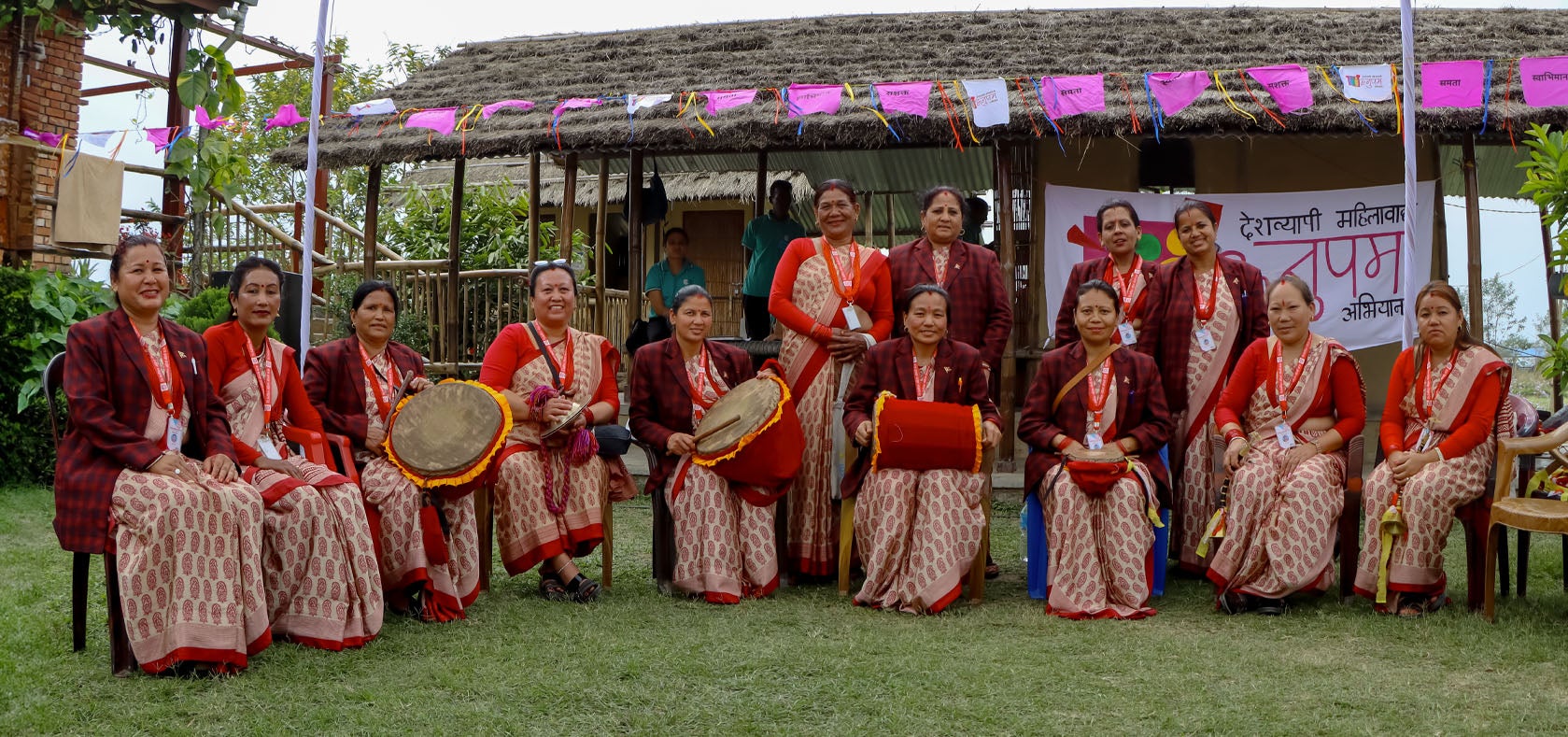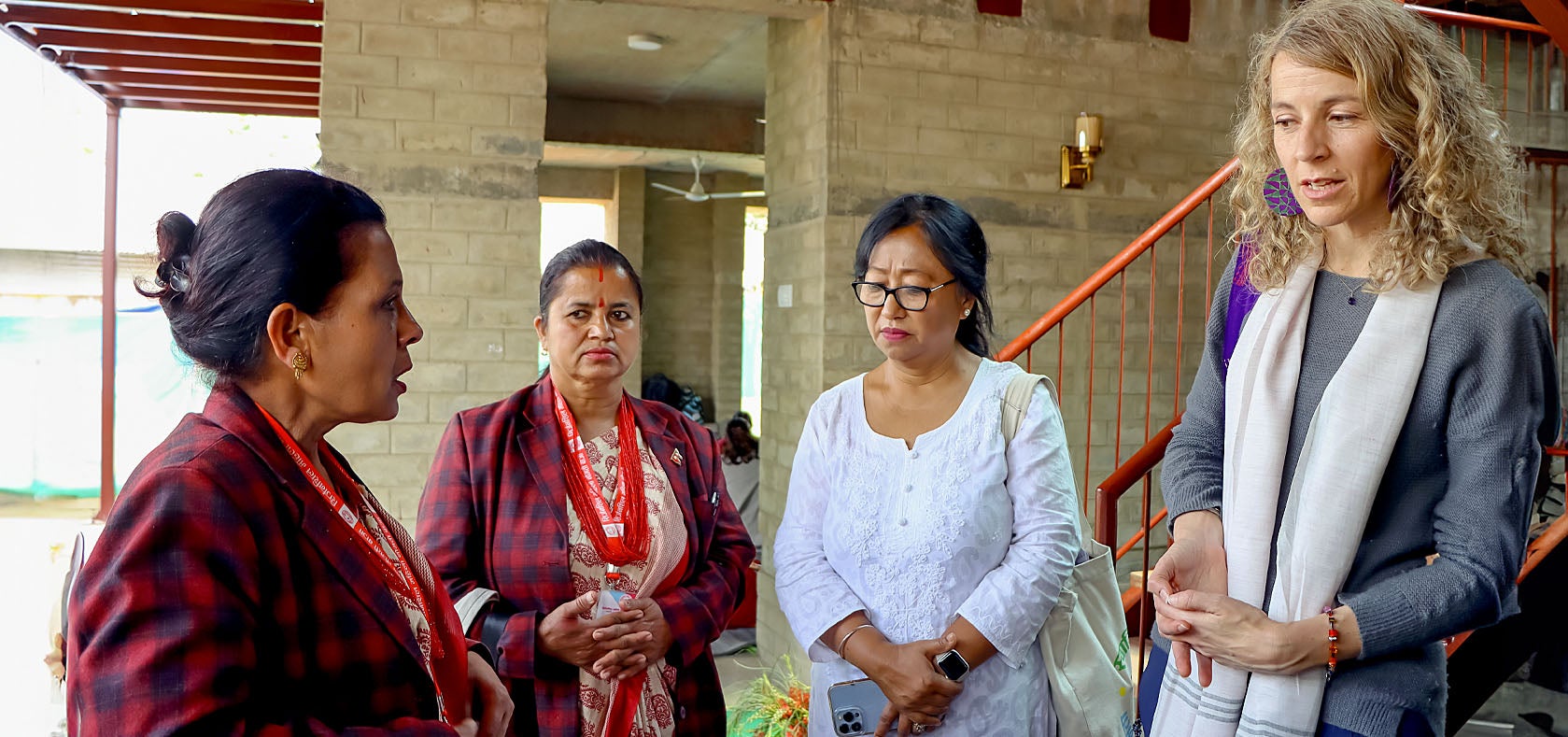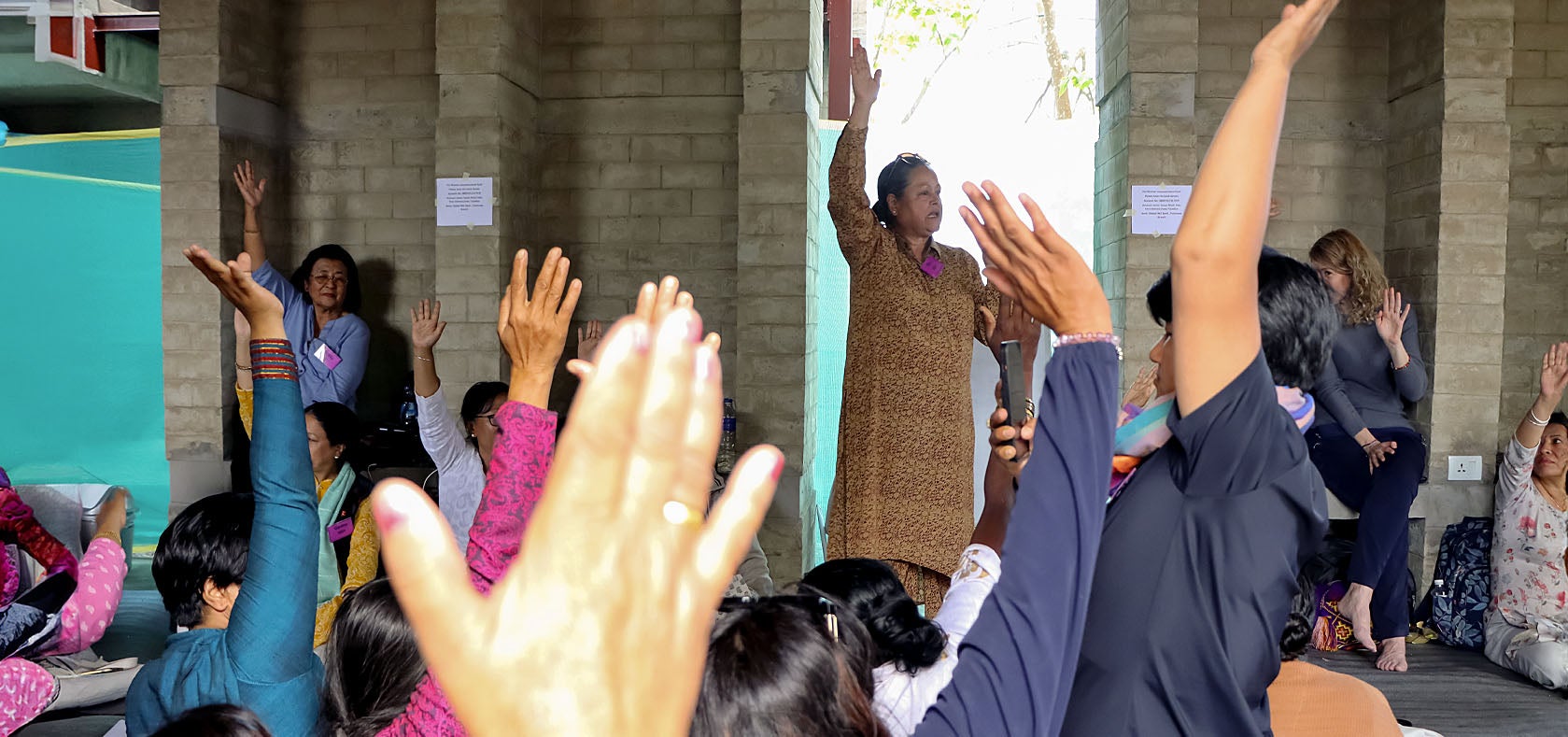Nepalese women defy gender and caste stereotypes through music
Date:
Author: Sangharsha Panta

Thirteen women dressed in similar attire – cream-coloured sarees with red borders and designs, paired with matching plaid blazers – play Naumati Baja, a combination of nine traditional Nepalese musical instruments made from wood, leather and metal as more than 150 women dance. The scene at Padmalaya, located in Nepal’s southern Nawalpur District last March, was mesmerizing.
But besides creating laughter and happiness, this group of women musicians also defied gender stereotypes with their performance. The musical group, named Sirjanshil Mahila Naumati Baja was part of a programme organized by the Inter-Generational Feminist Forum (IGFF), an informal group of feminists uniting grass-roots leaders supported by two civil society partners of UN Women Nepal. The event sought to showcase and encourage trailblazing women from different walks of life and different parts of Nepal to raise their voices against all forms of violence and discrimination against women and to build a solidarity movement for the meaningful participation of women in the political sphere.
“This music that we play represents the sound of our struggle, our rebellion,” said Bal Kumari Bhusal, who plays the Narasingha, a long, curved horn-like pipe instrument. “Playing Naumati Baja has always been considered a responsibility of men from the Dalit community. They never thought that a woman, let alone from a different caste, could also play the instrument with the same grace and pride.”
Naumati Baja has traditionally been played by Damais, a subgroup of the Dalit caste, on auspicious occasions such as weddings, religious ceremonies and different celebrations.
In 2021, when her all-women group was founded, Bhusal, along with fellow musicians from different castes – Rai, Limbu, Chaudhary, Brahmin, Chettri, etc. – faced significant resistance. Their struggle started from within: first, to learn how to play and stay determined; then, to build up the courage to stand up to their families and then society in order to break these gender and caste stereotypes.
But, after challenging traditions, the 16 members of Sirjanshil Mahila Naumati Baja are now making a living by playing these instruments, and have managed to establish themselves as respected musicians.
They were among the more than 150 feminists from 37 districts of Nepal who travelled by bus to Padmalaya to attend the nationwide “Anupam Abhiyan” women’s gathering organized by the IGFF, to celebrate and support fellow women. Every participant, including the Naumati Baja group, shared their stories and efforts to challenge and change gender stereotypes in their families and communities.

A delegation from UN Women, led by Country Representative Patricia Fernandez-Pacheco, was also invited to witness this historical moment and interact with these change-maker women.
“Here in Nepal, gender stereotypes are one of the main challenges which we should break down, together, and pave the way for women’s involvement to be not only embraced, but cherished as a vital pillar of advancing equality,” said Fernandez-Pacheco, in a speech emphasizing the pivotal role that women’s organizations play in fortifying policies for women’s advancement at all levels. UN Women also provided insights on the goal of the event – to craft a road map to enhance women’s representation and participation across all tiers of government in the forthcoming election cycle.
Renowned journalist Babita Basnet, who also participated in the event stated, "This conversation, taking place three years before the next election, will certainly spark enthusiasm among women to participate. This gathering with all of you is evidence of that."

The gathering served as a steadfast commitment to advocate for increased women’s representation and engagement in the political sphere. It was also a call to action to empower women to assume leadership roles in the 2027 elections. Launching this initiative four years in advance reflects a strategic move to get women planning, and to foster dialogue well ahead of time. The gathering featured different types of groupwork and interaction, followed by presentations and remarks from guests and members of the IGFF.